
The Rise of Flexible Packaging: Why Businesses Are Making the Switch
The Rise of Flexible Packaging: Why Businesses Are Making the Switch
In today’s competitive market, packaging plays a critical role in product protection, branding, and sustainability. More businesses are transitioning from traditional rigid packaging to flexible packaging, which offers cost savings, extended shelf life, and enhanced consumer convenience. This shift has driven the demand for advanced packaging machines, enabling manufacturers to efficiently package products in flexible pouches, bags, and sachets. In this article, we explore why flexible packaging is gaining popularity and how modern packaging machines are essential for its success.
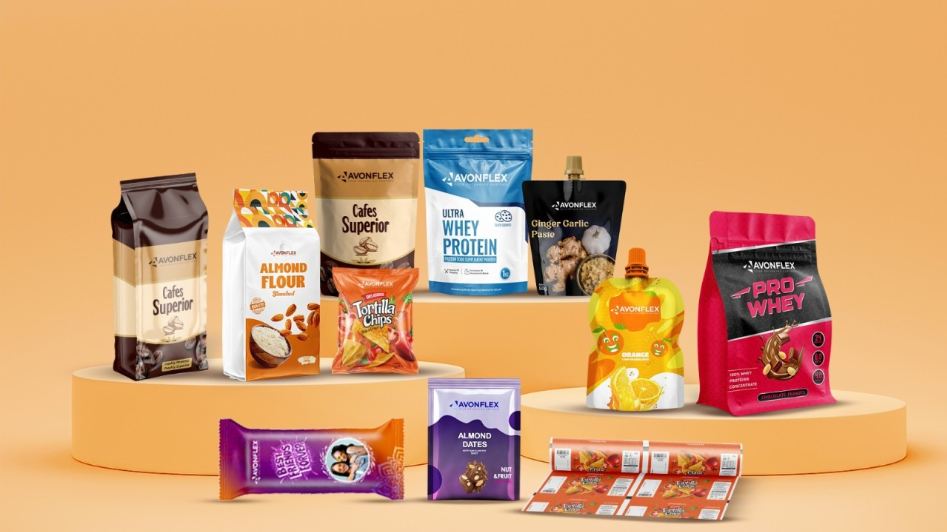
What is Flexible Packaging?
Flexible packaging refers to packaging that can change shape when filled or used, such as stand-up pouches, resealable bags, and film-wrapped products. It is typically made from plastic films, paper, aluminum foil, or biodegradable materials, providing a lightweight yet durable solution for various industries. The growing adoption of automated packaging machines ensures the precise filling, sealing, and labeling of flexible packages, increasing efficiency while maintaining high product quality.
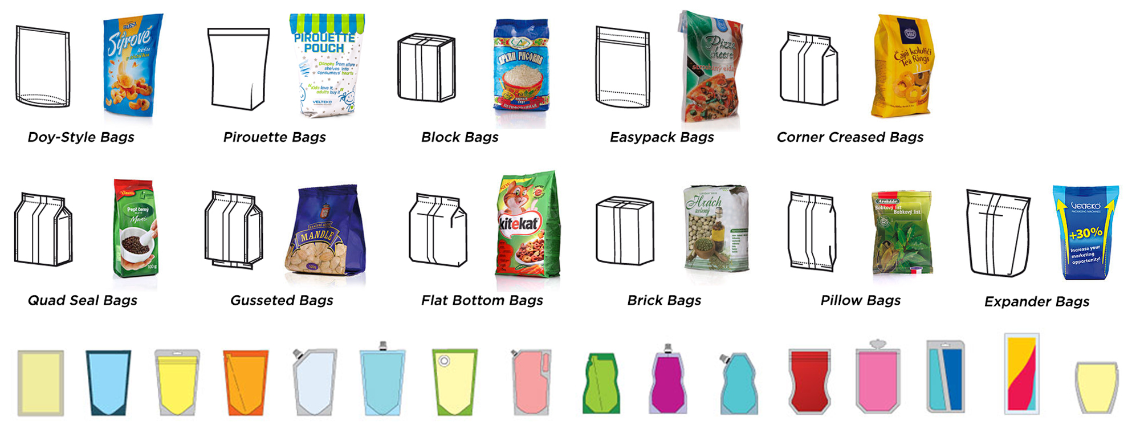
Key Advantages of Flexible Packaging & Packaging Machines
1. Cost Savings & Waste Reduction
Flexible packaging requires significantly less raw material than rigid alternatives, leading to lower production and transportation costs. Automated pouch filling and sealing machines further optimize material usage by ensuring precise cutting and sealing, minimizing waste. Additionally, manufacturers benefit from reduced labor costs by using fully automated packaging systems.
2. Extended Shelf Life & Product Protection
Flexible packaging provides excellent barrier properties against moisture, oxygen, and contaminants, which is essential for preserving food, pharmaceuticals, and other perishable products. Modern vertical form-fill-seal (VFFS) machines and horizontal pouch fillers ensure airtight sealing, preventing leaks and spoilage while maintaining product freshness.
3. High-Speed, Efficient Packaging Processes
The latest flexible packaging machines are designed for high-speed operation, increasing productivity without compromising accuracy. Whether using a multi-head weigher system for food products or a liquid filling machine for sauces and beverages, businesses can efficiently meet production demands and ensure consistent package quality.
4. Customization & Versatility
Flexible packaging supports a wide range of custom shapes, sizes, and designs, allowing brands to create unique, consumer-friendly packaging. Advanced packaging machines with adjustable settings can handle different pouch sizes, sealing temperatures, and filling speeds, making them adaptable for various industries, from snacks to personal care products.
5. Sustainability & Eco-Friendly Packaging
Many businesses are turning to biodegradable and recyclable flexible packaging materials to reduce environmental impact. Modern packaging machines are designed to work with eco-friendly materials, ensuring efficient and sustainable packaging solutions. Additionally, energy-efficient sealing technologies help reduce the carbon footprint of packaging operations.
6. Improved Consumer Convenience
Consumers prefer lightweight, resealable, and easy-to-use packaging. Flexible packaging often includes zipper closures, tear notches, and spouts, which are efficiently integrated using advanced packaging machines. These features enhance usability while minimizing food waste, as consumers can store and reuse products conveniently.
7. Space-Saving & Cost-Effective Logistics
Flexible packaging takes up less storage space compared to rigid containers, reducing warehouse and transportation costs. Modern automated case packers and palletizing systems further streamline the packaging process, ensuring efficient supply chain management for manufacturers and distributors.
The Role of Packaging Machines in Flexible Packaging
The success of flexible packaging largely depends on reliable and efficient packaging machines that can handle different materials and product types. Some of the most commonly used machines include:
Vertical Form-Fill-Seal (VFFS) Machines: Ideal for food products, powders, and granular items, these machines create, fill, and seal pouches in one continuous process.
Horizontal Form-Fill-Seal (HFFS) Machines: Used for pre-made pouches and larger flexible packaging, ensuring precise filling and high-speed operation.
Pre-Made Pouch Packaging Machines: Designed specifically for stand-up pouches, zipper bags, and spouted pouches, these machines offer excellent flexibility in packaging styles. They typically feature automatic pouch feeding, filling, sealing, and coding, making them an ideal choice for premium products like snacks, coffee, pet food, and liquid-based items. Advanced models are equipped with vacuum sealing and nitrogen flushing to extend product shelf life and enhance freshness
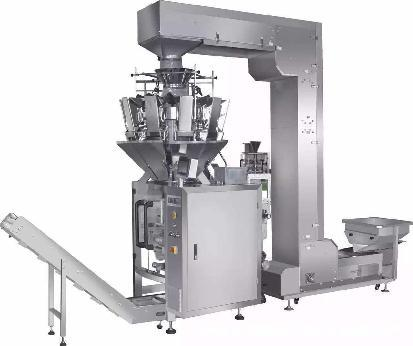
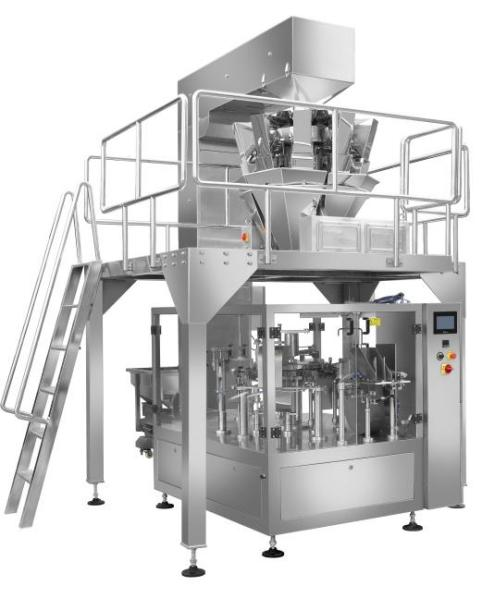
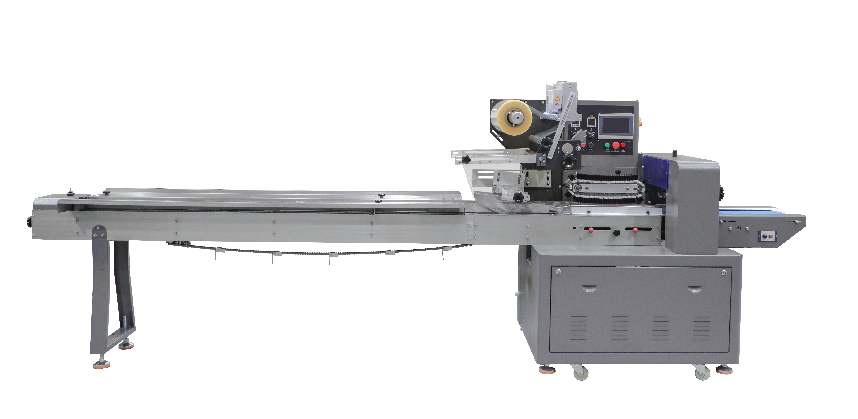
Vertical Packaging Machine Pre-Made Pouch Packaging Machine Horizontal Packaging Machine
Industries Benefiting from Flexible Packaging & Automation
Flexible packaging and advanced packaging machines are widely used across various industries, including:
Food & Beverages: Snacks, frozen foods, dairy products, sauces, coffee, pet food, and baby food.
Pharmaceuticals&Healthcare:Single-dose medicine sachets, liquid supplements, medical wipes, and diagnostic kits.
Personal Care &Cosmetics:Shampoo sachets, lotion pouches, face mask packets, and travel-sized products.
Household & Industrial Goods:Detergent refills, cleaning wipes, fertilizer sachets, and automotive fluids.
Future Trends in Flexible Packaging & Machinery
The future of flexible packaging is being shaped by smart automation, sustainability, and digital printing. Packaging machines are increasingly integrating AI-based quality control systems, IoT-enabled remote monitoring, and biodegradable film compatibility. These advancements ensure faster, more precise, and more environmentally friendly packaging processes, allowing businesses to stay ahead of industry trends.
Conclusion
Flexible packaging is transforming modern packaging solutions by offering cost savings, sustainability, consumer convenience, and improved logistics. However, the success of flexible packaging relies heavily on advanced packaging machines that ensure speed, precision, and reliability. Investing in automated pouch filling, sealing, and labeling systems allows businesses to enhance productivity, maintain product integrity, and meet evolving market demands. As technology continues to advance, flexible packaging and automation will remain essential for brands looking to optimize efficiency and sustainability in their packaging processes.
Get the latest price? We'll respond as soon as possible(within 12 hours)














